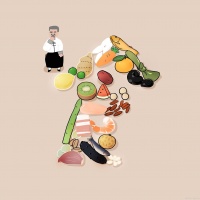Evaluating the Effectiveness of a Roblox Video Game (Super U Story) in
Nicole Paraskeva, Sharon Haywood, Jason Anquandah, Paul White, Mahira Budhraja, Phillippa C Diedrichs, Heidi Williamson
Abstract
Background: Body dissatisfaction is a global public health issue negatively impacting young people's mental and physical well-being, underscoring an urgent need to develop early interventions. Emerging evidence suggests that microinterventions are acceptable and effective in delivering mental health interventions. Given the popularity of video games among young people, gaming holds great promise for body image microinterventions. As such, we developed Super U Story, a stand-alone, self-paced, narrative-based adventure video game for the popular gaming platform Roblox grounded in the Tripartite Influence Model of body dissatisfaction and basic tenets of positive body image.
Objective: This trial evaluated the effectiveness of playing a purpose-built Roblox video game once on US children and adolescents' state and trait body image and related outcomes. Gameplay was capped at 30 minutes.
Methods: Overall, 1059 US-based girls and boys (n=460, 43.4% girls) aged 9 to 13 years (mean age 10.9, SD 1.36 years) from diverse ethnic, socioeconomic, and geographic backgrounds were recruited online via a research agency into a 3-arm, online, parallel randomized controlled trial. Participants were assigned to an intervention group, active control group (a Roblox game called Rainbow Friends 2 Story [Color Story]), or attention control group (web-based word search). Participants completed self-report assessments at baseline (1 week before the intervention and before randomization), immediately before and after intervention testing, and 1 week after the intervention. Outcomes included state measures of body satisfaction (primary outcome), mood, and body functionality and trait measures of body esteem, body appreciation, internalization of appearance ideals, and social media literacy. Data were evaluated using repeated-measure analysis of covariance controlling for baseline. Engagement and acceptability data were collected.
Results: Intervention participants showed improved state body satisfaction (F1,694=5.20; P=.02; ηp2=0.01) relative to the active control but not in comparison to the attention control. State mood, state body functionality, internalization of appearance ideals, and social media literacy showed no effects. Relative to the intervention group, the active control showed improved trait body esteem (F1,663=5.40; P=.02; ηp2=0.01) and body appreciation (F1,663=6.08; P=.01; ηp2=0.01). Exploratory analyses found that age and gender did not moderate the effects. We were unable to examine dose-response effects. Acceptability scores were good. Self-report engagement data suggested that participants experienced a highly variable and often low-dose exposure.
Conclusions: This large-scale, fully powered trial is the first to assess the effectiveness of a Roblox-based body image intervention, demonstrating the potential for disseminating microinterventions to children and adolescents on large and popular commercial platforms. Overall, playing Super U Story did not cause harm; however, evidence is lacking to suggest that it improved body image. Learnings are discussed, including psychoeducation as an intervention technique, "chocolate-covered broccoli" phenomena (ie, losing players who recognize thinly disguised educational messages), and measuring intervention engagement.
Trial registration: ClinicalTrials.gov NCT05669053; https://clinicaltrials.gov/study/NCT05669053.
评估Roblox电子游戏(超级U故事)在改善美国儿童和青少年身体形象方面的有效性:随机对照试验。
背景:身体不满是一个全球性的公共卫生问题,对年轻人的身心健康产生负面影响,因此迫切需要制定早期干预措施。新出现的证据表明,微干预在提供精神卫生干预方面是可以接受和有效的。鉴于电子游戏在年轻人中的流行,游戏为身体形象微干预提供了巨大的希望。因此,我们基于身体不满的三方影响模型和积极身体形象的基本原则,为流行的游戏平台Roblox开发了《Super U Story》,这是一款独立、自定节奏、基于叙述的冒险电子游戏。目的:本试验评估玩过一次专门制作的Roblox视频游戏对美国儿童和青少年的状态和特征身体形象及其相关结果的有效性。游戏时间限制在30分钟。方法:总体而言,通过一家研究机构在线招募了1059名年龄在9至13岁(平均年龄10.9岁,标准差1.36岁)的美国女孩和男孩(n=460, 43.4%女孩),他们来自不同的种族、社会经济和地理背景,参与了一项3组、在线、平行随机对照试验。参与者被分配到干预组、积极控制组(游戏邦注:游戏名为《Rainbow Friends 2 Story》[Color Story])或注意力控制组(基于网络的单词搜索)。参与者在基线(干预前和随机化前1周)、干预测试前后和干预后1周完成自我报告评估。结果包括身体满意度(主要结果)、情绪和身体功能的状态测量,以及身体尊重、身体欣赏、外表理想内化和社交媒体素养的特质测量。数据评价采用重复测量分析的协方差控制基线。收集了敬业度和可接受性数据。结果:干预对象对国家主体满意度提高(f1694 =5.20;P = .02点;ηp2=0.01),但与注意控制相比无显著差异。国家情绪、国家身体功能、外表理想内化和社交媒体素养没有影响。与干预组相比,积极对照组的身体自尊显著提高(f1663 =5.40;P = .02点;ηp2=0.01)和身体欣赏(f1663 =6.08;P = . 01;ηp = 0.01)。探索性分析发现,年龄和性别并不能缓和这种影响。我们无法检验剂量-反应效应。可接受性得分很好。自我报告参与数据表明,参与者经历了高度可变且通常是低剂量的暴露。结论:这项大规模、全动力的试验首次评估了基于roblox的身体形象干预的有效性,展示了在大型和流行的商业平台上向儿童和青少年传播微干预的潜力。总的来说,玩《超级U故事》并没有造成伤害;然而,缺乏证据表明它能改善身体形象。书中讨论了心理教育作为一种干预技术、“巧克力覆盖的西兰花”现象(即,失去能够识别出几乎不加掩饰的教育信息的玩家)以及测量干预参与度。试验注册:ClinicalTrials.gov NCT05669053;https://clinicaltrials.gov/study/NCT05669053。
本文章由计算机程序翻译,如有差异,请以英文原文为准。
相关知识
Two Puzzles, a Tour Guide, and a Teacher: The First Cohorts’ Lived Experience of Participating in the MClSc Interprofessional Pain Management Program
The Importance of Good “Emotional Hygiene” for Your Mental Health
Perceived Quality of Health Information in Short Video Platforms: Modeling the Process and Influencing Factors
A Qualitative Exploration of Nutrition Screening, Assessment and Oral Support Used in Patients Undergoing Cancer Surgery in Low
Embracing Wellbeing in the Workplace: Strategies for a Healthier 2025
Effectiveness of Health and Wellness Programs
Research on the Content of College Physical Education Curriculum in terms of Socialization Perspective
What We Say Matters: The Power of Words in American and Indigenous Histories
Experts’ Consensus on the Management of Respiratory Disease Syndemic
Defining a Healthy Diet: Evidence for the Role of Contemporary Dietary Patterns in Health and Disease
网址: Evaluating the Effectiveness of a Roblox Video Game (Super U Story) in https://m.trfsz.com/newsview1636125.html
